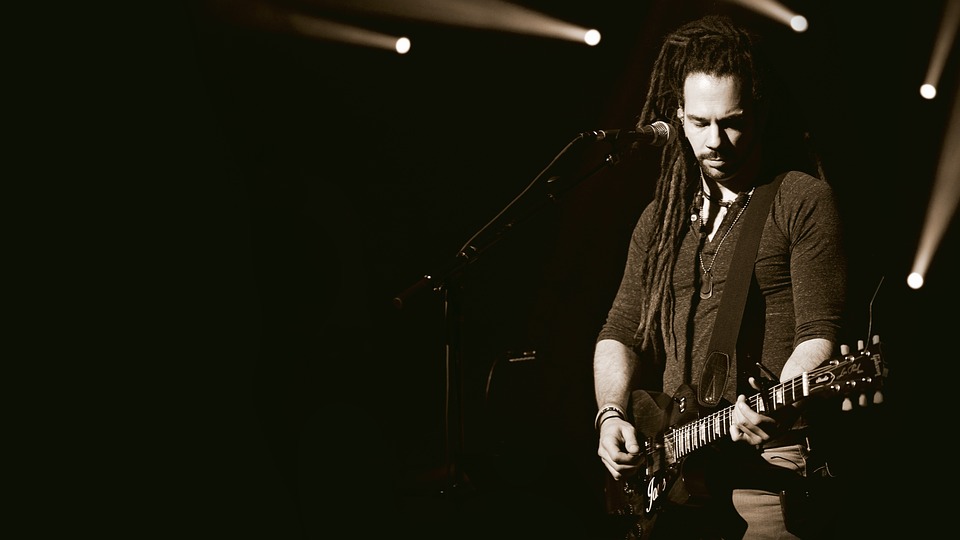
Ghost Singers: A Surprising Trend in the Music Industry
In today’s music industry, where image is everything and perfection is expected, the use of ghost singers has become a surprising trend that is gaining popularity. Ghost singers are artists who provide vocals for songs, but remain anonymous and are not credited for their work. This practice has become more common in recent years, with even some of the biggest names in the music industry using ghost singers to enhance their sound.
Why Use Ghost Singers?
There are several reasons why artists and producers choose to use ghost singers in their music. One of the main reasons is to achieve a certain sound or style that the original artist may not be able to deliver. Ghost singers are often chosen for their vocal abilities and range, allowing them to hit notes and perform intricate vocal runs that the original artist may struggle with.
Another reason for using ghost singers is to save time and money. In today’s fast-paced music industry, artists are often under pressure to release new music quickly and efficiently. By using ghost singers, artists can focus on other aspects of their music while still delivering high-quality vocals.
Furthermore, some artists may choose to use ghost singers to maintain a certain image or persona. For example, a male artist may use a female ghost singer to provide backing vocals or harmonies, creating a more diverse and dynamic sound. By using ghost singers, artists can experiment with different styles and genres without compromising their image or brand.
Examples of Ghost Singers
While the use of ghost singers is not always publicized, there have been several instances where artists have been exposed for using them in their music. One notable example is the popular EDM duo Chainsmokers, who have been accused of using ghost singers for their live performances. In a now-deleted Instagram post, a former member of the duo revealed that their live shows were not always performed live, with vocals sometimes being prerecorded by ghost singers.
Another example is the pop superstar Beyoncé, who has been rumored to use ghost singers for her live performances and recordings. While Beyoncé is known for her powerhouse vocals and dynamic performances, some fans have speculated that she may use ghost singers to enhance her sound and deliver flawless performances.
In the K-pop industry, the use of ghost singers is also prevalent, with many idols and groups relying on ghost singers for their recordings and performances. In some cases, agencies may hire ghost singers to provide vocals for groups who may not have strong vocalists, helping to create a more polished and professional sound.
The Controversy Surrounding Ghost Singers
While the use of ghost singers may be common in the music industry, it is not without its controversies. One of the main criticisms of ghost singers is the lack of transparency and honesty in the music-making process. Fans and critics alike argue that artists should be credited for their work, and that using ghost singers takes away from the authenticity and integrity of the music.
Furthermore, the use of ghost singers can also lead to legal issues, as some ghost singers may not be properly compensated or credited for their work. In some cases, ghost singers may sign nondisclosure agreements or contracts that prevent them from revealing their involvement in a song or project, leading to a lack of recognition and compensation for their contributions.
Additionally, the use of ghost singers can also create controversy within the music industry, with some artists and producers accused of exploiting talented vocalists for their own gain. In an industry that often prioritizes image and success, the use of ghost singers raises questions about ethics and fairness in the music-making process.
The Future of Ghost Singers
Despite the controversies surrounding ghost singers, it is likely that the trend will continue to thrive in the music industry. With advancements in technology and production techniques, artists and producers have more options than ever to create polished and professional sounding music, often relying on ghost singers to achieve their desired sound.
As the music industry continues to evolve, it is important for artists and producers to be transparent and honest about their use of ghost singers, and to ensure that all contributors are properly credited and compensated for their work. While the use of ghost singers may be a surprising trend in the music industry, it is ultimately up to artists and producers to decide how they want to approach their music-making process.